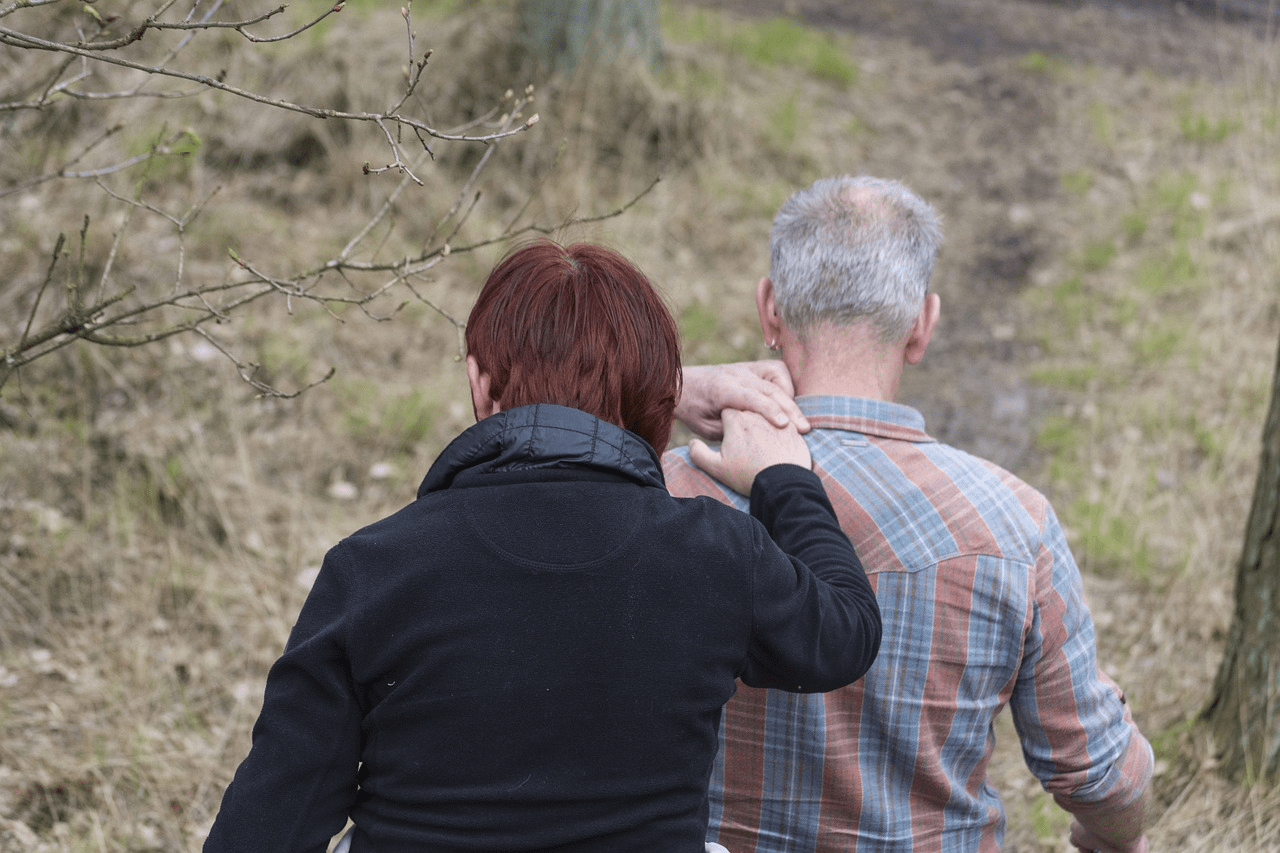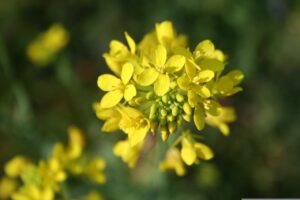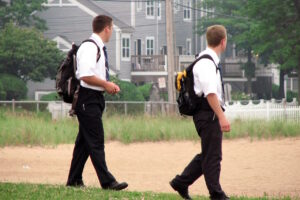Isaiah 50: 4c-9a; Psalm 116; James 2: 14-18 (RM) or 3: 1-12 (RCL); Mark 8: 27-35 (RM) or 27-38 (RCL.)
On a sunny Sunday afternoon in June, many long years ago, a friend of mine suggested we pack a picnic lunch and ride our bikes out to the woods. I protested that I had a final exam the next day and had to keep studying, but finally relented and said I could go for a little while.
While seated in the woods with our lunch, he became very nervous and said he had to ask me a big question. With a shaky grin and gritted teeth, emphasizing every syllable, he pronounced the words,
“Will. You. Follow. Me?”
I was thoroughly puzzled. I had no idea what he was trying to say.
He grew even more nervous and emphatic:
“Will – you – follow — me? With our lives. Together.”
Now the question was both puzzling and weird. Was this a proposal? We were just good friends. It wasn’t that kind of relationship. He wasn’t a native speaker of English – was there a language glitch I wasn’t catching?
Then, by the grace of God, I managed to give a perfect and appropriate response:
“I think we need to take time to get to know each other better.”
In today’s Gospel, the big windup at the end shows Jesus telling the gathered crowd as well as his disciples,
“Whoever wants to become my follower, let them deny themselves and take up their cross and follow me. For whoever wants to save their life will lose it, and whoever loses their life for my sake, and for the sake of the Gospel, will save it.”
Everyone knows that “following Jesus” is a common trope in Scripture, preaching, religious education, and particularly Protestant popular hymnody:
“I have decided to follow Jesus … no turning back, no turning back.”
The idea appears already in Mark 1:17-20, when the fishermen who would become his first disciples were called to “follow” him. But when “follow” is used here in Mark 8:34 it suddenly alters what had been a repeated theme in Mark’s Gospel on a literal, descriptive level – Jesus went somewhere, his friends kept up with him, the crowd followed him, and then something remarkable happened, whether a miraculous cure or a significant teaching. Now suddenly, taken on a metaphorical level, this following and journeying together assumes a more ominous, threatening meaning.
The context had been set in the dialogue between Jesus and his friends about his identity. He first asks,
“Who do people say that I am?” then “But who do all of you say that I am?” Peter, ever putting foot in mouth, answers,
“You are the Messiah, the Christos, the Anointed One.”
In first-century Judaism there were varying expectations of the Messiah, mostly a vindicator. But now Jesus of Nazareth is identified as a figure with divine power, more power than the Roman imperial government. Then Jesus predicts that he will suffer and die at the hands of the Roman occupation forces, and Peter takes him aside to protest. The stakes of travelling with Jesus suddenly got much, much higher.
Leaving aside the question of how much the human person Jesus could have foreseen of his fate, this story gives advance warning to its hearers of what 20th century theologian Dietrich Bonhoeffer would call “the cost of discipleship.” It pivots on the credibility of the person one is following. Is he really the Messiah? Why would one risk one’s own life to follow a mere miracle-worker? There were quite a few of them plying their trade in the first-century eastern Mediterranean region. Why follow a potential fraud? What kind of faith is necessary? What kind of wisdom? More to the point, what kind of courage?
To round out the story of my friend—nearly forty years later, we’re still in touch. He never married. (Neither did I.)
But I’ll be darned if I’ll accept some guy’s invitation to “follow” him. I mean, seriously!
© Susan K. Roll
This Reflection has been revised from that of September 12, 2021.
Susan Roll retired from the Faculty of Theology at Saint Paul University, Ottawa, in 2018, where she served as Director of the Sophia Research Centre. Her research and publications are centred in the fields of liturgy, sacraments, and feminist theology. She holds a Ph.D. from the Catholic University of Leuven (Louvain), Belgium, and has been involved with international academic societies in liturgy and theology, as well as university chaplaincy, Indigenous ministry and church reform projects.




